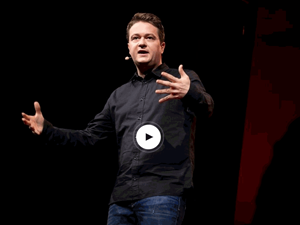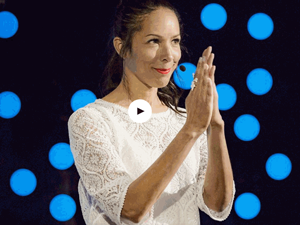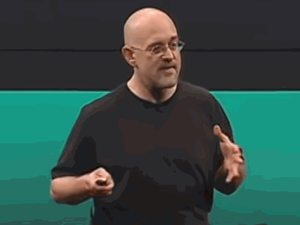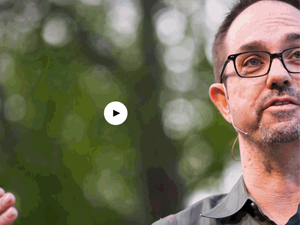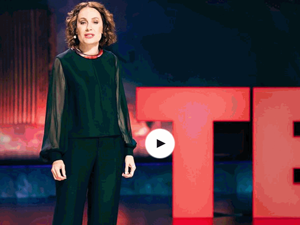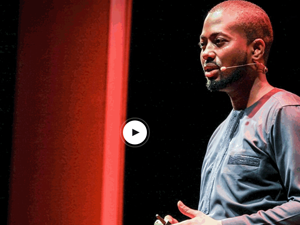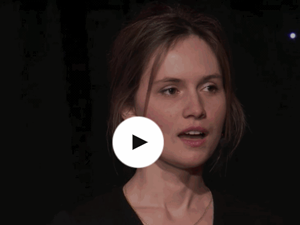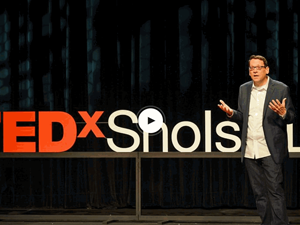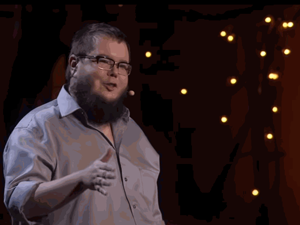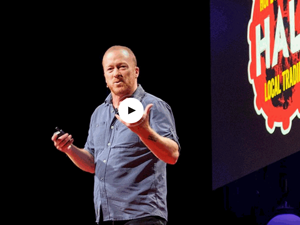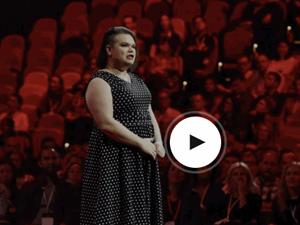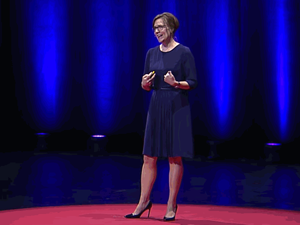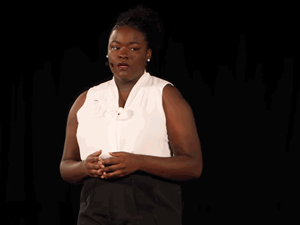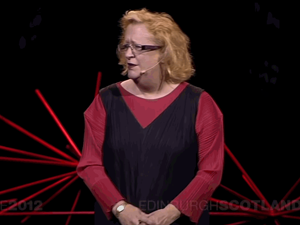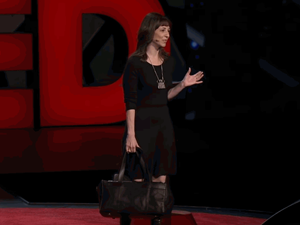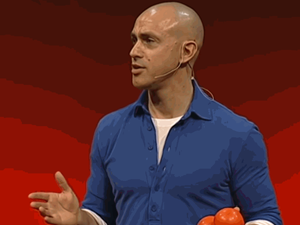Inspiring Ted Talks
Sometimes we just need an inspiring message, a new perspective or a gentle reminder that we all struggle from time to time. Feel free to view a few favorite Ted Talks and if you come across others that help you -- let us know and we'll add them to the list. Enjoy!
Johann Hari: This could be why you’re depressed or anxious (20:31)
In his talk, journalist Johann Hari shares insights on the causes of anxiety and depression from some of the world’s leading experts. He suggests that we might need to stop looking at it from the perspective that our brain is malfunctioning and needs to be “fixed” with drugs. Rather, the focus should be on our unmet human needs, such as human connection.
Nikki Webber Allen: Don’t suffer from your depression in silence (6:35)
Nikki Webber Allen is a producer and activist whose main message is that having feelings isn’t a sign of weakness. It’s a sign of being human. The stigma of mental health struggles, specifically in the African American community, kept her from revealing her own until a family tragedy revealed how loved ones were also suffering in silence. She wants everyone to know that they are not alone and to reach out when they need help.
Kevin Breel: Confessions of a depressed comic (10:48)
Comedian Kevin Breel discusses his own struggles with depression and the part of him that only he sees, but he encourages those going through the same thing to let others know about their struggles. “It’s a massive problem,” he says, but one wouldn’t know from looking at social media. People tend only to post the best and happiest moments. But he wants everyone to know that knowing about the darkness does not take away from the light.
Dan Gilbert: The Surprising Science of Happiness (21:19)
Forget all the existential debates you will be exposed to in English, psychology, and philosophy. All you really need to know, about the existential qualities of happiness anyway, are explained in this episode of Ted Talks. The really great thing is that achieving happiness really only takes minimal effort on your part. See, the brain has amazing adaptive skills and can find happiness in any situation. All you have to do is let your brain be happy instead of constantly thinking you will be happy when you get whatever it is you don’t have. Enjoy the now. Enjoy the unreachable when it becomes reachable. It’s simple…mostly.
JD Schramm: Break the silence for suicide attempt survivors (4:14)
In this talk, JD Schramm advocates for resources for suicide attempt survivors because “it gets better.” Many who attempt suicide a second time after a first failed attempt will be successful. Those who have tried and failed but found their way back to a meaningful life need to be willing to speak up to convince those who may be thinking about suicide that it really does get better and that their lives matter.
Susan David: The gift and power of emotional courage (16:48)
Psychologist Susan David claims that we live in a world of emotional rigidity. What we feel is often not meant to be outwardly shown and expressed. Most of the population is either obsessively brooding on their feelings or trying to push them aside. Emotions are labeled as either “good” or “bad,” and the bad emotions are pushed aside so as to not legitimize them. She argues that “We own our emotions, … they don’t own us,” and that we must be emotionally agile in order to combat the emotional rigidity around us. People and organizations, she argues, achieve resiliency when they are open to the full range of human emotions.
Sangu Delle: There’s no shame in taking care of your mental health (9:06)
An activist from Ghana, Sangu Delle discusses the ways in which he felt the stigma of mental health as he battled his own anxiety. “Mental health” is such a misunderstood term in Africa that many men feel like they cannot talk about their feelings openly. Delle suggests that we must overcome the stigma and realize that being honest and open about our feelings does not make us weak. Rather, it makes us human.
Olivia Remes: How to cope with anxiety (15:16)
Anxiety researcher Olivia Remes talks about the different types of anxiety. Around the 7-minute mark, she begins to discuss three specific coping mechanisms for dealing with anxiety. The first has to do with jumping into a project without giving yourself too much time to think before diving in. The second is forgiving oneself. Be kinder to yourself and forgive yourself for mistakes as you would show that same compassion to others. The last involves finding meaning and purpose in life. We can greatly improve our mental health when we find that our life contributions matter to others and affect others in a positive way.
Bill Bernat: How to connect with depressed friends (13:10)
Comedian Bill Bernat gives some advice to people who want to engage with friends with depression but just don’t know how to go about it. In this humorous talk, Bernat goes through a few “do’s” and “don’t’s” to help you connect with friends with depression. The key is to treat them as you would anybody else. Talk about normal life activities, and don’t focus on the depression. One thing that is emphasized is that it’s possible to be sad and OK at the same time. Remembering that will help you more easily connect with a friend who has depression.
Shane Koyczan: To This Day…For the Bullied and Beautiful (12:03)
No, bullying does not stop in college. Even if it did, the effects of high school bullying remain. But, those effects do not have to be negative. The bullied can be beautiful. They can change their diet and exercise, and even have surgery to become externally beautiful, but that is not the beauty Koyczan discusses. The bullied have the potential to develop heightened senses of empathy and emotional connectedness, both of which are beautiful, rare qualities.
Jeremy Forbes: How to start a conversation about suicide (12:16)
Founder of HALT, an Australian mental health organization, Jeremy Forbes discusses how and why he started the organization. He saw people who were anxious, depressed or thinking about suicide but felt like they had to suffer in silence because of cultural expectations. He thought about ways to get the community together for a conversation about mental health. It turns out that with the stigma attached to mental health, especially in his local community, the best way to get people to open up about their mental health issues was to get them into an environment where they weren’t expected to, but where they felt they were in a safe space to do so.
Jordan Raskopoulos: How I live with high-functioning anxiety (14:19)
Comedian and performer Jordan Raskopoulos has what is referred to as “high functioning anxiety.” She doesn’t have any stage fright, but offstage she has what she refers to as “life fright,” a constant stream of worried thoughts in all situations. In this talk, she discusses how she gets along so well in society despite the stigma of anxiety. She has certain situations that she avoids and certain methods of focusing on one specific thing at a time. Talking about her anxiety issues and developing hobbies are among the methods she discusses in this humorous talk.
Kristen Pressner: Are you biased? I am (8:48)
What do you do when you realize you have a bias, even against yourself? Kristen Pressner is the Global Head of Human Resources at a multinational firm, and a tireless advocate for, and promoter of, women in the workplace. In this enlightening talk, Kristen explores how we can recognize our own hidden, irrational biases — and keep them from limiting us.
Lyric Swinton: What I have learned as a first-generation college student (4:49)
Anyone can feel out of place due to differences in gender, race, socioeconomic status, relationships, or even separation of work-life and weekend life. But Lyric Swinton knows that we are not defined by the stereotypes placed upon us. Swinton is keenly aware of how stereotypes can hinder one’s development, but she’s overcome the challenges of being a first-generation college student, and she wants us to know that we all play a role in helping others overcome their struggles.
Margaret Heffernan: Dare to Disagree (12:56)
That’s right, a healthy college debate is much more acceptable. Odds are, you will have at least one or two classes that are structured as workshops. For example, many writing classes require peer editing of each paper and provide specific class time for discussing the paper. Not everyone will agree about the structure and content of the piece, and debating various opinions is often the purpose of that class time. Honestly listening to each side helps students create a more complete, multidimensional view of the situation that they can carry on to other parts of their personal and scholastic lives.
Susan Cain: The Power of Introverts (19:04)
Although popular culture would say otherwise, introverts do have a place in society, and it’s a very important place. Many of the best philosophers, scientists, mathematicians, and other scholars were introverts. It’s these people who take the time to reflect inward, a place where many are afraid to look. Instead of being encouraged to conform, or become more extroverted, introverts should be encouraged and supported to share their thoughts and findings with the world. Knowledge about ourselves is the key to knowing the world. So, if you are an introvert, don’t change for the world.
Andy Puddicombe: All it Takes is 10 Mindful Minutes (9:24)
If you don’t have ADHD when you start college, you might develop similar symptoms. Between friends, teachers, classes, and recreational activities, it’s often hard to stop your brain from churning. But, the feeling of overwhelming stress can be prevented, according to Puddicombe, by taking just 10 minutes out of your day to live in the present. It doesn’t have to be yoga or meditation classes. In fact, adding such classes simply adds a further strain on your schedule and increases the number of things you have to learn. Instead, simply take 10 minutes, in a place where you can be completely alone, and take in your surroundings. One great way to force your mind to the present, Puddicombe says, is juggling.
CONTACT US.
Campus Mental Health and Wellness Center
Curtiss Hall 112
counselingservices@svsu.edu
(989) 964-7078


